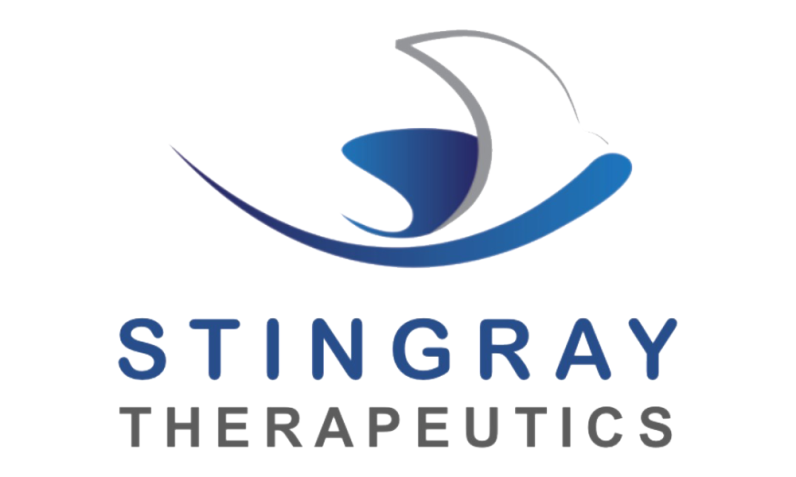
The five-year survival rate for colon cancer is 13%. Soak on that for a minute. There is a critical need for more effective cancer treatments. Unfortunately, current immunotherapy treatments face limitations due to the complexity of the amazing but stubborn human immune system. Fortunately, Stingray Therapeutics is offering hope to millions. They have developed a breakthrough therapy, SR-8541A, that is showing great promise in restoring innate immunity, potentially unlocking the effectiveness of existing treatments for colon cancers where they currently fail. With vastly superior absorption rates to their competitors' treatments and early entry into development, Stingray's team aims to significantly improve response rates to treatments for pancreatic, prostate, breast, and colorectal cancer.
Co-founded by Jon Northrup, the company has made considerable headway with its research program. After getting his MBA in finance at Wharton, Northrup has spent his whole life thus far in the pharmaceutical business, bringing years of experience to Stingray Therapeutics. He started at Eli Lilly, where he worked on everything from sales and marketing to corporate business development. He completed 40 deals for Eli Lilly before leaving in 2004 to consult for pharmaceutical companies across Asia, which then turned into running a venture group in India for Jubilant Life Sciences called Jubilant Innovation.
Northrup eventually returned to the US in 2010 and started his first biotech company with Dr. Sunil Sharma, a renowned GI oncologist. Along with his role at Stingray, Dr. Sharma is deputy director at the Translational Genomics Research Institute, has worked at many NCI cancer centers, and has been the primary investigator on over 150 clinical cancer trials. "Having individuals like Dr. Sharma, deeply versed in oncology, is essential in this field. He understands the right compounds to study, identifies appropriate trial designs and stays abreast of current and future trends, ensuring that we are in alignment with the evolving field of oncology," asserts Northrup.
After starting two other biotechs together (both still going strong), Dr. Sharma and Northrup started Stingray. It was 2016. "I was talking to Sunil. At the time, the first checkpoint inhibitors were coming out, the first immuno-oncology agents. And I said, 'Sunil, immuno-oncology is the hottest thing since night baseball. Where's our program?'" Northrup explains. Sunil came up with the program, and the pair started Stingray Therapeutics, deciding to focus on the next generation of immunotherapy. After just eight short years, Northrup says their treatment is succeeding while other approaches have been failing.
Unlike current immuno-oncology treatments available that target adaptive immunity and are only effective in about half of tumors, Stingray's therapy targets innate immunity and is offering hope for the other half where existing treatments have failed without Stingray's therapeutic. Northrup and Sharma are aiming for response rates of 40% to 50%, which would significantly improve outcomes for some of the worst cancers. To make that happen, they put together a team of experts.
Alexis Weston is Stingray's Director of Business Development & Program Management, and Mohan Kaadige, PhD, serves as the Head of Biology. Both have been with Stingray since its inception. Northrup notes, "They have both made incredible contributions." In addition, Northrup and Sharma appointed Monil Shah as VP of Development. "He has been an amazing clinical developer. He has worked for 15 years in immune-oncology on the clinical side," Northrup shares.
Northrup notes that Amanda Seiz and Linda McBride have been instrumental as well, with 50-plus years of drug development experience between the two of them. He also shares credit with Uma Bhatt, CPA, who is an expert in accounting, grant accounting, and investments, and the current CFO and Trason Thode, who manages all lab experiments and has a great cancer lab background. "We couldn't do this without all of them. Each of them is a key piece to Stingray's progress and success."
The team's work has garnered significant validation and support. Notably, the Cancer Prevention and Research Institute of Texas (CPRIT) awarded Stingray a $14 million, three-year grant, covering a substantial portion of expenses for their current clinical trial and to cover company overhead through 2026. Additionally, Stingray received a $2 million, two-year grant from the National Cancer Institute, a Direct to Phase 2 SBIR grant in order to facilitate accelerated development as well.
Only 11% of patients diagnosed with pancreatic cancer will survive. With the disheartening statistics surrounding some cancers, the urgency for more effective treatments is undeniable. Stingray Therapeutics' formidable team of experts is on the cusp of proving SR-8541A therapy's efficacy, which could give the other 89% hope. As Stingray Therapeutics continues to push the boundaries of immuno-oncological research and therapies, they invite new investors to join their crusade against cancer and be part of creating a brighter future for all.
To learn more about Stingray Therapeutics, visit www.stingraytx.com.







Join the Conversation